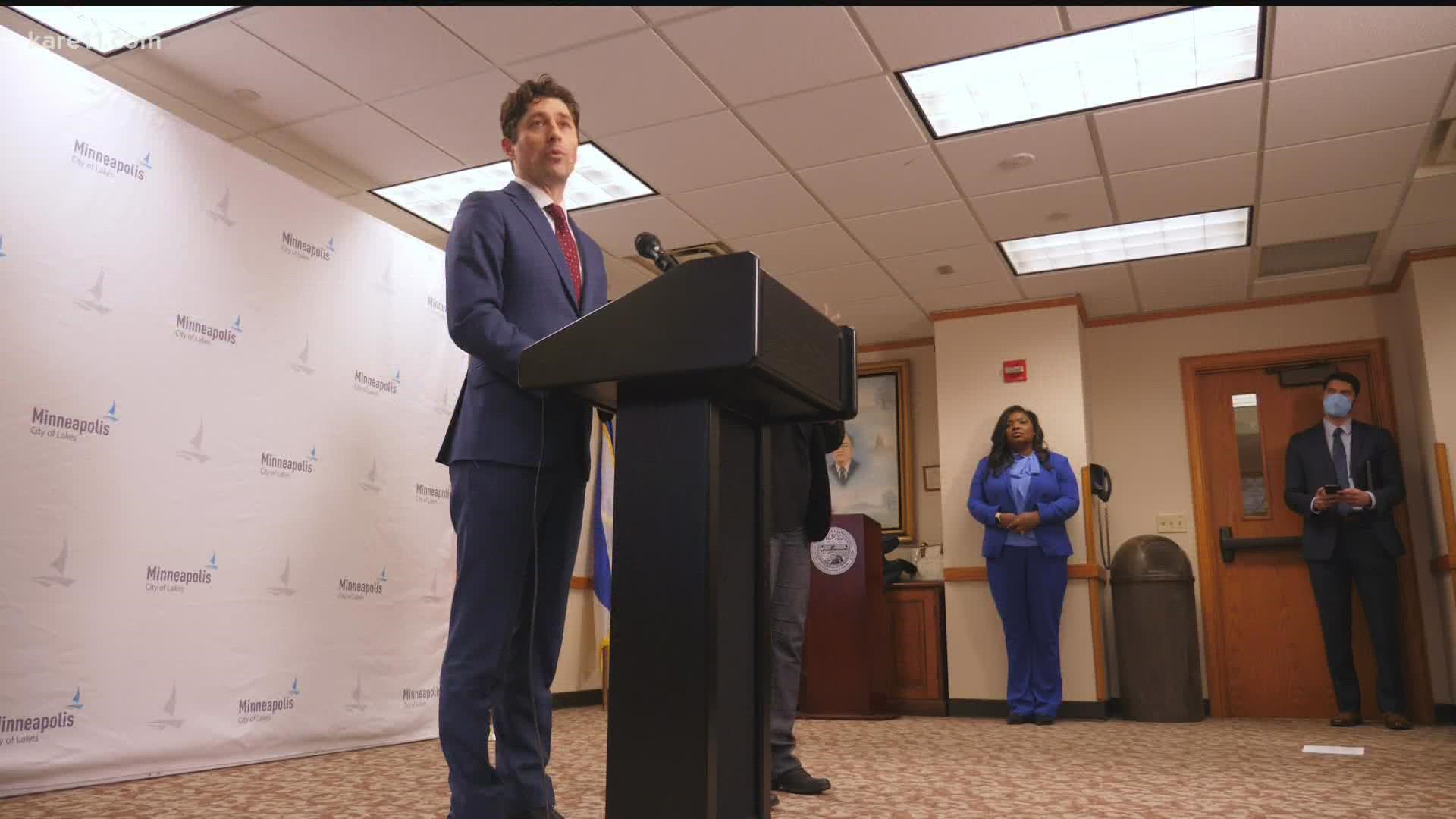MINNEAPOLIS — Minneapolis Mayor Jacob Frey said his office is proposing a full prohibition of applying for and executing no-knock and no-announce search warrants in the city, after the previous no-knock policy was heavily criticized and scrutinized following the shooting death of Amir Locke in February.
Under the proposal, the prohibition would apply to warrants executed by the Minneapolis Police Department on behalf of other agencies, and those requested by Minneapolis police but carried out by other agencies.
The new policy goes further than the current moratorium on no-knock warrants in Minneapolis, which barred the practice following Locke's death. First, the proposal establishes wait times for officers before they can enter a residence while executing a knock and announce warrant. During the day, officers will have to wait 20 seconds after making themselves known before entering. At night, the wait time is 30 seconds.
However, Frey acknowledged that there would be some exceptions for hostage or other extremely dangerous situations.
Second, the department will establish a new classification system for warrants: low, medium and high risk. High risk warrants will require additional approval.
The third pillar outlines safer entry tactics and enhanced technology, and the final element to the policy establishes a civilian review and accountability system, including an online dashboard with data that reflects when and how search warrants have been executed.
Frey, who expects the updated policy to be formalized in the next two to three weeks, confirmed that since the moratorium was issued, the police department hasn't executed any no-knock warrants.
“Following the killing of Amir Locke, we wanted to make sure we got this new policy right," Frey said.
In a press release later Monday evening, attorneys for Locke's family responded to Frey's announcement. It read:
“We are encouraged by this proposal to prohibit no-knock warrant applications and executions by Minneapolis Police Department officers and other policy updates that will help keep Minneapolis residents safe. We hope these proposed reforms are not only implemented in Minneapolis but also spread throughout local, state, and federal governments so there can be protections in place nationwide to prevent another person from suffering the tragedy that took the lives of Amir Locke or Breonna Taylor.”
Body camera footage from the morning of Feb. 2, 2022 showed Amir Locke sleeping on the couch in a downtown Minneapolis apartment before he was startled awake as officers executed a no-knock warrant at the unit. Locke was shot and killed by a SWAT officer.
Police were looking for Locke's cousin Mekhi Speed in connection to a murder in St. Paul. Locke was never named on the warrant.
Following Locke's death, the Minneapolis Civil Rights Department Office of Police Conduct Review (OPCR) announced it would conduct a special review of the city's no-knock warrant policy, focusing on identifying and recommending specific changes and improvements.
DFL lawmakers have proposed a ban on no-knock warrants in all of Minnesota. The bill passed the House Public Safety Committee by a narrow 10 to 9 vote on Feb. 17.
In 2020, Frey and then-Police Chief Medaria Arradondo announced that the city was changing its policy to put strict limits on the use of no-knock warrants and effectively eliminate them. Under the updated policy at the time, all MPD officers were required to announce themselves and their purpose before entering a residence. There would be some exceptions in certain cases, for example, hostage situations.
But even after the policy change, Minneapolis Police continued to obtain warrants for no-knock entry. In March 2021, police body camera video revealed MPD SWAT team members barging through the front door of a home in a pre-dawn, no-knock raid last year while investigating a stolen puppy.
In April of the same year, a Coon Rapids woman and her daughter were held at gunpoint after a SWAT team mistakenly raided their house as they executed a no-knock warrant on behalf of Minneapolis police.
According to data from the city, the MPD carried out 78 no-knock warrants in 2021, down from 171 in 2020.
The same data revealed that in 2019, the department executed 194 no-knock warrants — the most in the last six years.
The death of Amir Locke
Get more updates on Locke's case and the city's response on our YouTube playlist:

